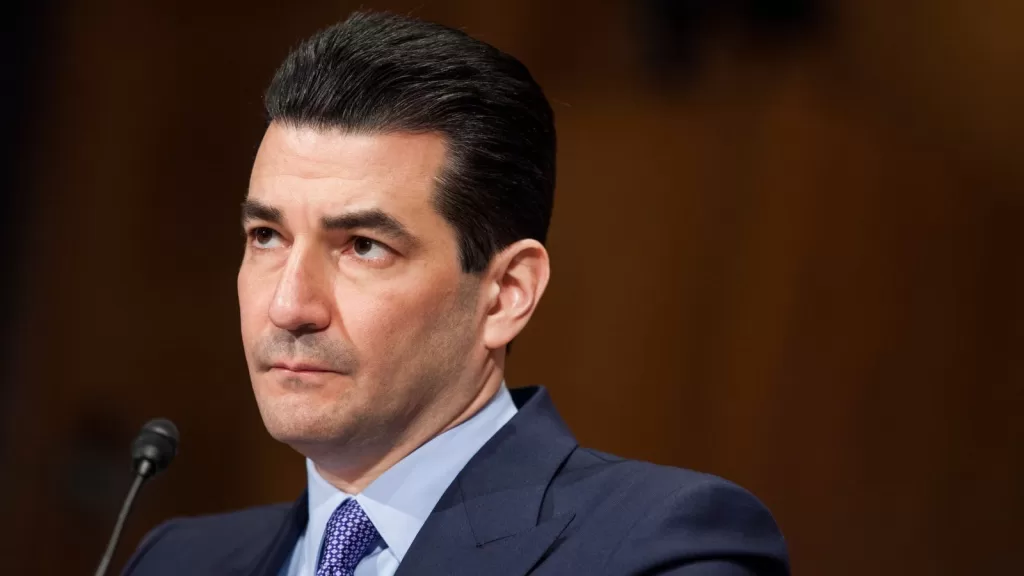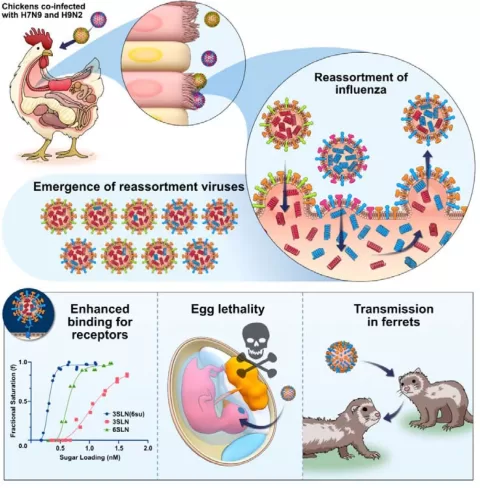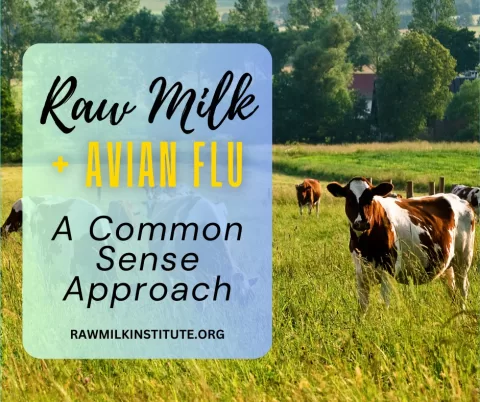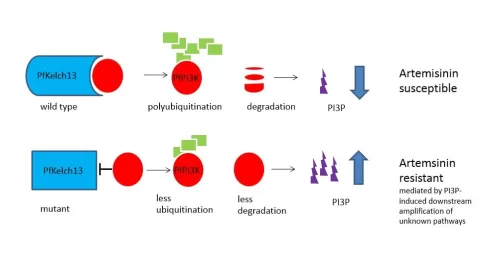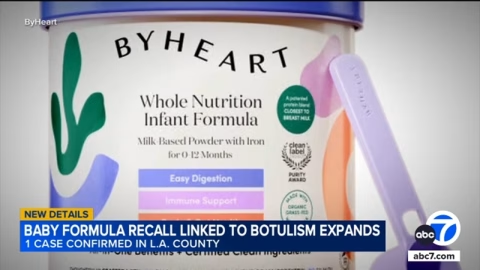The recent resignation of a top FDA vaccine official has sent shockwaves through the scientific community and government entities alike. Peter Marks, who has played a crucial role in the FDA’s response to the COVID-19 pandemic through initiatives like Operation Warp Speed, was reportedly forced to resign under pressures from the Department of Health and Human Services (HHS) led by the controversial Secretary Robert F. Kennedy Jr. This significant shift raises alarm regarding vaccine policymaking in the United States, particularly amid rising concerns over vaccine misinformation. Lawmakers and scientists have voiced worries about the implications for public trust in vaccines, especially as the HHS vaccine advisory committee’s role is diminished. As the landscape of vaccine regulation appears to be changing under Kennedy, the question of how these changes will impact vaccine availability and public health is of paramount importance.
The unexpected departure of a leading official from the FDA, particularly in the vaccine division, signifies a turbulent time for the agency’s commitment to public health. With Peter Marks’ resignation, there is a growing sense of unease about how this shift reflects broader changes within the Department of Health and Human Services, especially under the guidance of Secretary Robert F. Kennedy Jr. This departure has sparked intense discussions about vaccine skepticism and the potential undermining of public confidence in vaccines during critical health crises. As scrutiny increases regarding the administration’s approach to vaccination strategies and the veracity of vaccine-related information, it remains imperative to consider the future of both regulatory practices and public health initiatives amid calls to return to transparent and science-based policy.
The Fallout from the FDA Vaccine Official Resignation
The recent resignation of Peter Marks, MD, from the FDA’s Center for Biologics Evaluation and Research has sent shockwaves through the public health community. Marks, a pivotal figure in the development of COVID-19 vaccines during Operation Warp Speed, asserted in his resignation letter that the Department of Health and Human Services (HHS) under Secretary Robert F. Kennedy Jr. was moving away from established scientific protocols. Lawmakers are particularly alarmed by the possible implications for vaccine confidence and public health initiatives, fearing that under Kennedy’s leadership, misinformation may not only persist but also proliferate, undermining years of public trust built by professionals like Marks. The simultaneous outbreak of measles and HHS’s decisions concerning vaccine advisory committees add to the urgency of these concerns.
As critics raise alarms about the implications of this leadership change, it is evident that Marks’ resignation is not merely a personnel issue—it represents a systemic shift that could redefine how vaccine safety and efficacy are approached in the U.S. Many lawmakers, including Senator Bill Cassidy, have publicly urged the administration to fill this critical role with a scientifically credible individual. Given the historical context of Kennedy’s skepticism towards vaccines, there is increasing anxiety about future public health policy being shaped by political motives rather than rigorous scientific evidence, heightening the risks associated with vaccine misinformation.
Amplifying Vaccine Misinformation Concerns
Peter Marks has been an outspoken advocate for vaccine transparency and safety, noting in his resignation letter that the current administration under HHS Secretary Robert F. Kennedy Jr. seems to act more on impulses of misinformation than scientific integrity. This raises substantial concerns among health professionals about the potential for increased vaccine hesitancy, particularly in light of ongoing public discourse surrounding vaccine safety. By sidelining independent advisory bodies and appointing critics to lead pivotal studies, the administration is effectively undermining the scientific consensus that has emerged from decades of research, posing serious risks to public health.
The reaction from the scientific and medical communities has been swift and resolute. Experts are warning that delegitimizing established scientific guidelines could contribute to a resurgence of vaccine-preventable diseases, particularly in vulnerable populations. The vaccination gap, exacerbated by the actions of the current HHS, could lead to increased incidence of diseases like measles, which recently claimed lives due to low vaccination rates. As figures like Robert F. Kennedy Jr. continue to advocate alternative misinformation, concerns over the compartmentalization of credible scientific advice only grow, leading many to call for a stronger, unified response to combat misleading narratives in the public sphere.
Lawmakers Rally for Vaccine Integrity amid Resignation
In the aftermath of Peter Marks’ resignation, bipartisan concerns have emerged in Congress regarding the future of vaccine policy in the United States. Key lawmakers, including Senator Bill Cassidy and Representative Gerald Connolly, have expressed alarm over the potential erosion of FDA’s credibility and operational independence. They worry that the HHS’s recent moves to replace competent officials with skeptics could impact vaccine availability and public health outcomes. Connolly’s assertion that the administration’s actions align with a broader attack on science highlights the political dimensions of this issue, raising essential questions about the integrity of the FDA moving forward.
As lawmakers call for the reactivation of the FDA’s vaccine advisory committee, the fear of politicizing vaccine discourse looms large. The scientific community is watching intently, as independent studies have consistently debunked vaccine misinformation, yet the credentials and judgment of seasoned officials like Peter Marks have been overlooked for political expediency. This loss could have rippling effects on public vaccination campaigns, as bipartisan support is crucial in fostering public trust in vaccination efforts, particularly in the face of a rising tide of vaccine skepticism perpetuated by figures like Robert F. Kennedy Jr.
The Impact of Kennedy’s Leadership on Vaccine Research
With Robert F. Kennedy Jr. at the helm of HHS, the trajectory of vaccine research and public health policies is poised for significant change. Kennedy has garnered a reputation as a vaccine skeptic, and this stance is leading to misaligned priorities within the Department of Health. In the context of vaccine safety, his administration’s decisions—to include critics of established vaccine protocols in leading investigative studies—could create an environment where misinformation flourishes. Many in the scientific community fear that this administrative shift could stifle innovation, as it discourages the input of qualified experts who prioritize integrity over ideology.
Furthermore, the recent restructuring of advisory committees has elevated concerns about transparency and the overall assessment of vaccine safety. Critics point out that sidelining well-established scientific bodies could result in policy recommendations that do not reflect sound scientific reasoning. This evolution raises pertinent questions about maintaining the quality of future vaccine development, potentially undermining the significant public health successes achieved through rigorous research and development, as evidenced by Operation Warp Speed’s role in combating the COVID-19 pandemic.
Public Health Repercussions of Vaccine Hesitancy
The ongoing shift in vaccine administration policy under Robert F. Kennedy Jr.’s leadership is likely to exacerbate public hesitancy about vaccines, resulting in dire public health implications. As states navigate outbreaks of vaccine-preventable diseases, health officials are concerned that the delay in vaccine availability and accessibility could lead to a resurgence of illnesses that the medical community has successfully minimized over the years. Marks’ resignation and the ensuing political climate signal a potential deterioration of collaborative efforts that are vital for vaccination campaigns promoting herd immunity.
Research consistently shows that vaccine confidence is intricately linked to community support and the public’s perception of health authorities. With leadership changes at the FDA stirring mistrust about the integrity of vaccine recommendations, it becomes imperative to reaffirm the commitment to evidence-based practices in public health. The ramifications of these leadership decisions could not only impact current vaccination rates but also the future of disease prevention strategies in the U.S., marking a potentially troubling era for public health amidst the twin challenges of misinformation and vaccine skepticism.
Calls for Transparency in Vaccine Policy
As the Biden Administration’s efforts to manage public health through vaccination come under scrutiny, advocates for scientific integrity are calling for heightened transparency in vaccine policy. Critics of the recent changes, including prominent figures within the health sector, have stressed the importance of openness and accountability in all vaccine-related communications and studies. Marks’ commitment to transparency as a guiding principle during Operation Warp Speed serves as a reminder of the essential value of clear, evidence-based dialogue in countering misinformation propagated by skeptics like Robert F. Kennedy Jr.
Moreover, the demand for an independent and objective vaccine advisory committee has garnered support from lawmakers and scientists alike. As safety and efficacy remain central themes in public health discussions, the necessity of conducting unbiased research free from political influence has never been clearer. Ensuring that a diverse and credible body of experts has oversight in vaccine policy will foster trust among the public and mitigate the risk of misinformation. The path forward lies in reinforcing the scientific rigor that has characterized historical public health successes.
The Future of Vaccine Innovation at Risk
The resignation of FDA’s leading vaccine official, Peter Marks, raises critical questions about the ongoing innovation in vaccine development and public health response strategies. With the current administration’s inclination towards appointing vaccine skeptics to pivotal roles, the risk of obstructing scientific advancement looms large. Marks has been instrumental in advancing vaccine initiatives that have previously secured public health milestones, and his departure signifies a worrying trend toward prioritizing political ideology over scientific consensus.
Concerns expressed by industry leaders regarding the erosion of established scientific protocols echo the broader fear of how these changes may affect future innovations that save lives. As the biotechnology sector faces mounting challenges with regulatory policies shaped by misinformation, the imperative to uphold high standards becomes increasingly significant. Collaborating with leaders dedicated to promoting transparent, research-driven policies will be vital for the future of vaccine technology and public health initiatives.
Strengthening Vaccine Confidence Amidst Challenges
In light of the tumultuous changes within HHS and the FDA, stakeholders across the public health landscape are rallying to reinforce vaccine confidence in the United States. With misinformation campaigns threatening to undermine the progress made through decades of public health initiatives, the reaffirmation of trust between health authorities and the public is crucial. Initiatives to ensure transparent communication and engage in educational outreach are essential to dispel myths and reinforce the positive impact of vaccination.
As state officials confront rising cases of vaccine-preventable diseases, collaborations between public health entities, lawmakers, and community leaders will be instrumental in addressing vaccine hesitancy. Promoting accurate information, leveraging social media platforms, and providing clear responses to public concerns will be key in reclaiming the narrative around vaccines. By focusing on evidence-based strategies and actively engaging with communities, public health advocates can work to restore confidence in vaccines, ensuring the protection of public health moving forward.
Engaging Communities in Vaccine Advocacy
As we navigate the complex landscape of vaccine advocacy in a changing political environment, it is essential to engage communities in discussions about vaccination. The recent turmoil stemming from the resignation of Peter Marks and the controversial leadership of Robert F. Kennedy Jr. calls for a grassroots approach to vaccine education and awareness. Through partnerships between health authorities and local organizations, proactive efforts can be made to address specific community concerns and foster an environment of trust.
Engaging local health leaders and influencers can amplify messages of vaccine importance and safety, thus combating the spread of misinformation. Community-focused events, outreach programs, and collaborative campaigns can empower individuals with knowledge and resources necessary to make informed choices about vaccines. By embracing a collaborative mindset and placing emphasis on community involvement, health advocates can ensure that clear and accurate information reaches populations at risk of succumbing to vaccine hesitancy.
Frequently Asked Questions
What prompted the resignation of Peter Marks, the FDA’s top vaccine official?
Peter Marks, the FDA’s leading vaccine official, was compelled to resign by the U.S. Department of Health and Human Services (HHS) under new Secretary Robert F. Kennedy Jr. This action raised significant concerns among lawmakers and scientists about vaccine misinformation and the integrity of the FDA’s vaccine policies.
How does Peter Marks’ resignation relate to vaccine misinformation under Robert F. Kennedy Jr.?
Peter Marks’ resignation is directly connected to concerns about vaccine misinformation promoted by HHS Secretary Robert F. Kennedy Jr. Marks expressed worry that the Secretary seeks to support misleading narratives about vaccines, which undermines public trust during a critical time of vaccine use amidst a measles outbreak.
What role did Peter Marks play in Operation Warp Speed before his resignation?
Before resigning, Peter Marks played a pivotal role in Operation Warp Speed, which was a collaborative initiative designed to accelerate the development, production, and distribution of COVID-19 vaccines. His leadership in this effort has been acknowledged as vital to the successful rollout of vaccines in the U.S.
What is the significance of the HHS vaccine advisory committee in light of Marks’ resignation?
The HHS vaccine advisory committee, which was sidelined following Peter Marks’ resignation, serves as a crucial independent body that previously monitored vaccine safety and effectiveness. Its recent exclusion from vaccine policymaking raises alarms about the transparency and scientific integrity of the FDA under Kennedy’s leadership.
How are lawmakers reacting to the resignation of Peter Marks?
Lawmakers from both parties have expressed significant concerns about Peter Marks’ resignation. They stress the need for the FDA to be led by someone with credibility and expertise, emphasizing that this change could adversely affect vaccine availability and public health efforts.
What are the broader implications of Peter Marks’ resignation concerning public health?
The resignation of Peter Marks carries broad implications for public health, as it potentially compromises the FDA’s commitment to evidence-based vaccine policy. Concerns have been raised that under the leadership of Secretary Kennedy, there may be an erosion of scientific standards and increased propagation of vaccine misinformation.
What concerns have scientists expressed regarding the FDA following the resignation of Peter Marks?
Scientists, including those from the Brown University School of Public Health, have voiced that Peter Marks’ resignation weakens the FDA’s effectiveness and jeopardizes scientific rigor, particularly at a time when public trust in vaccines is crucial amidst ongoing health crises.
What were the contents of the letter from the National Academies of Sciences regarding Marks’ ouster?
The National Academies of Sciences published a letter signed by approximately 1,900 members warning that Peter Marks’ ousting represents a significant erosion of the nation’s scientific enterprise and raises serious concerns over the advancement of an agenda fraught with misinformation within HHS.
What actions has HHS taken regarding vaccine oversight after Peter Marks’ resignation?
Following Peter Marks’ resignation, HHS established its own panel of federal experts to discuss vaccine strain recommendations for flu vaccines, sidelining traditional advisory mechanisms and raising questions about the agency’s commitment to transparent scientific review.
What did John Crowley, CEO of BIO, say about the impact of Peter Marks’ resignation on the FDA?
John Crowley characterized Peter Marks’ leadership as instrumental in ushering breakthroughs in vaccine and therapy development. He voiced concerns that his resignation could degrade scientific standards at the FDA, potentially reverse advances in medical innovation, and negatively affect public health.
| Key Point | Details |
|---|---|
| Peter Marks Resigns | Peter Marks, the FDA’s top vaccine official, was forced to resign under the new HHS Secretary, Robert F. Kennedy Jr. |
| Concerns Over Vaccine Misinformation | Marks expressed concerns about misinformation undermining public confidence in vaccines amid a measles outbreak. |
| Shift in HHS Leadership | Kennedy’s appointment has prompted changes in how vaccine safety and information are managed. |
| Bipartisan Political Response | Lawmakers from both parties expressed alarm over the resignation and its implications for vaccine availability. |
| Impact on Scientific Integrity | Experts warn that Kennedy’s approach could significantly erode the scientific standards and trust in the FDA. |
| Industry Concerns | Leaders from the biotechnology sector worry that Marks’ departure will hinder innovation and patient care. |
Summary
The resignation of the FDA vaccine official raises serious concerns regarding the future of vaccine safety and public health communications. The FDA Vaccine Official Resignation has sparked fears among lawmakers and scientists about the integrity of health oversight in the U.S., particularly under the current administration led by HHS Secretary Kennedy. As the nation grapples with misinformation and public skepticism about vaccines, the situation calls for urgent attention to restore trust and ensure that health decisions are grounded in science rather than politics.
The content provided on this blog (e.g., symptom descriptions, health tips, or general advice) is for informational purposes only and is not a substitute for professional medical advice, diagnosis, or treatment. Always seek the guidance of your physician or other qualified healthcare provider with any questions you may have regarding a medical condition. Never disregard professional medical advice or delay seeking it because of something you have read on this website. If you believe you may have a medical emergency, call your doctor or emergency services immediately. Reliance on any information provided by this blog is solely at your own risk.



